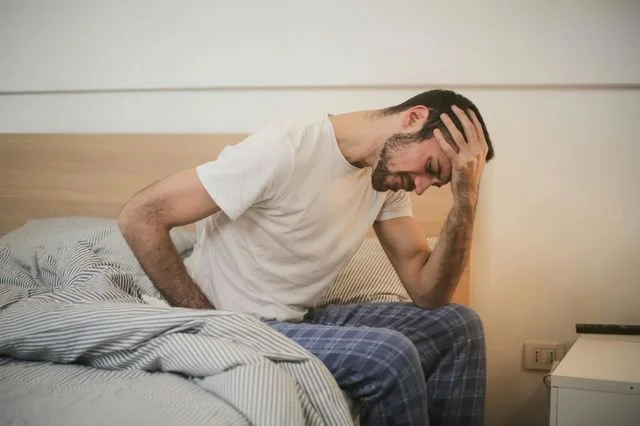Some of the diagnostic criteria for a Major Depressive Disorder (MDD) include: Loss of interest or Pleasure. Psychomotor retardation. Insomnia or hypersomnia. Decreased concentration. Fatigue.
These symptoms of MDD do not just show up independently; often, there can be a relationship between them.
Take the symptoms of insomnia or hypersomnia. Sleep problems can contribute to several of the other symptoms mentioned above. If you don’t get enough sleep, you may be fatigued and unable to concentrate.
So, it is important to ask: Are your sleep problems a symptom of your depression or do you have depression and that is causing your sleep problems?
Sleep is an important part of life. We often think about sleep as just rest, and building up energy for the next day is an important part of sleep. But there is a lot more going on when you sleep. Your body is healing. Your mind is organizing what you experienced that day in memories. Your mind is sorting through new ideas and information that came to you.
Sleep problems are fairly common. A study by the National Institute of Health reports that about “50 to 70 million people have sleep disorders, and 1 in 3 adults do not regularly get the recommended amount of uninterrupted sleep they need to protect their health” (https://www.nhlbi.nih.gov/health-topics/education-and-awareness/sleep-health).
Some sleep problems are temporary. You may have trouble with sleeping for a short period of time. You may have trouble going to sleep because you are going over some troubling events of the day or you are anxious about something you must do tomorrow. These sleep problems can usually be addressed with some relaxation techniques or a supplement like melatonin.
The sleep problems associated with depression are more enduring. If you have depression, you may have trouble getting to sleep, getting back to sleep when you wake up in the middle of the night, or waking up in the morning. Your mind can also play a role in your sleeping problems. As you lie there awake, there can be dread or frustration. You try to figure out why you aren’t sleeping. You think about what tomorrow will be like because you aren’t sleeping.
When you do wake up and begin your day, the fatigue from a sleepless night contributes to more negative thoughts along with decreased ability to concentrate and focus.
Here are some suggestions to help you with the sleep problems that come with depression.
1. Rule out other causes for your sleeping problems.
Disorders like sleep apnea and restless leg syndrome can disrupt your sleep. Consult your doctor to see if these are present and come up with a plan to treat them.
2. Talk with your doctor about sleep medication.
There are a variety of sleep medications that might help stabilize your sleep patterns. If your sleep problems are caused by depression, some of the antidepressant medications that impact mood can help with sleep.
3. Develop a meaningful bedtime routine.
Think about the way we talk about sleep. We say, “I am going to sleep.” But sleep is not something you can do or accomplish. All you can do is put yourself in a place where you are ready when sleep arrives.
A bedtime routine can help with that. Enter into your routine deliberately. You may go around preparing the house for the night. You may pull back the cover on your bed and prepare your sleeping space. There may be other activities that you do regularly at night like brush your teeth or take a shower. Do these with a sense of mindful awareness.
4. Do a simple mindfulness practice.
I often teach my clients a Be Still Mindfulness practice. When you get in bed, put yourself in a position that you know you sleep in. Form an intention to stay in this position. Don’t lock your body; just relax into the position. When you feel the urge to move, stay with your intention (Tossing and turning when you can’t sleep only wakes you up more). Focus on your breathing—In, Out—as a way to calm your mind.
My depression treatment specialty page will give you more information about how I work with people who struggle with depression.



